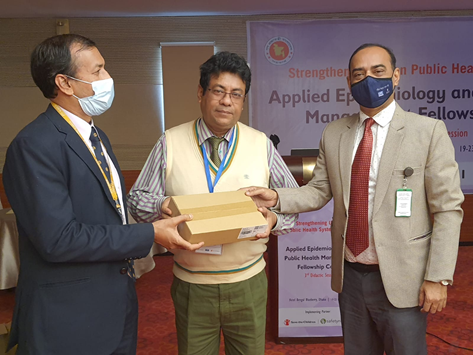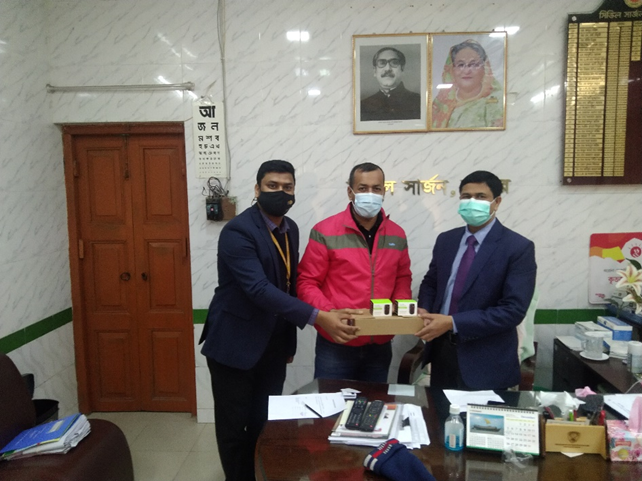Optica Mobilized to Aid COVID-19 Relief Efforts in Bangladesh
Optica Mobilized to Aid COVID-19 Relief Efforts in Bangladesh
Sammi Bradley, Digital Communications Coordinator, Optica
It’s fair to say that COVID has changed the way people interact in our daily lives. The world is increasingly connected, and data consumption continues to multiply, driving a constant need for better optical communication infrastructure. As many turned to internet-based conference services and delivery of grocery services, consumers changed how they shopped and sifted priority items. There was a shortage of things one might expect: Toilet paper, disinfectant wipes and thermometers. But, there are other—more surprising—items like semiconductor chips, kayaks, and more recently, pulse oximeters.
Oxygen saturation meters, also known as pulse oximeters, monitor blood oxygen content and are essential tools in detecting low oxygen levels during the early stages of a COVID infection. With one in ten COVID patients requiring supplemental oxygen for survival, using pulse oximeters can effectively support triage efforts to reserve critical supplies for those in most need. Pulse oximeters can also easily be disinfected to ensure safe and efficient reuse.

Caption: Lt. Col. Dr. Syed Hassan Abdullah, Country Head of Safetynet, with Mr. Dostogir Harun, presents pulse oximeters to city health professionals.
In the second half of 2021, with the SARS-CoV-2 virus spreading aggressively in Bangladesh, many healthcare facilities in the region were facing a shortage of working pulse oximeters. To address this critical need, Optica mobilized to distribute 1,000 pulse oximeters to healthcare facilities in the region including: Government hospitals, COVID dedicated hospitals, community clinics and city health centers.
As part of the dissemination program, staff from receiving facilities attended the Applied Epidemiology and Public Health Management Fellowship Course, held in collaboration with the CDC and International Centre for Diarrhoeal Disease Research, Bangladesh (icddr,b).

Caption: Mr. Dostogir Harun presents pulse oximeters to Dr. Shahin Mia, District civil surgeon, Jashore.
Afterward, health officials distributed the pulse oximeters to city community health centers and organized training sessions on their usage. The devices are currently being distributed by icddr,b to 500 community clinics across Bangladesh. Each clinic provides care to a population of about 6,000, thus our effort is providing access to this critical tool to a population of about 3,000,000 patients.
The Optica Foundation, as part of its greater COVID Relief efforts, also initiated the Pulse Oximeter Community Sharing Program in collaboration with India COVID SOS to distribute pulse oximeters in India via the Optica network of volunteers and India COVID SOS distribution channels.
Learn more about this impactful program and international work of the Optica Foundation.
